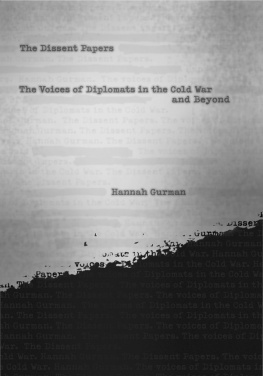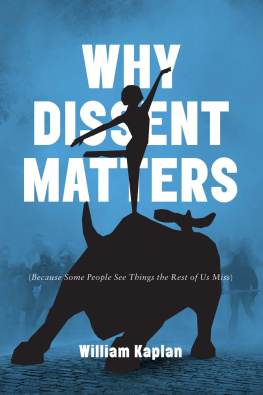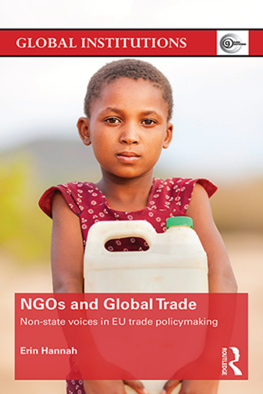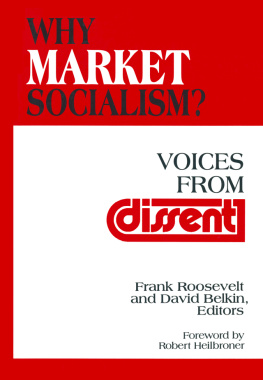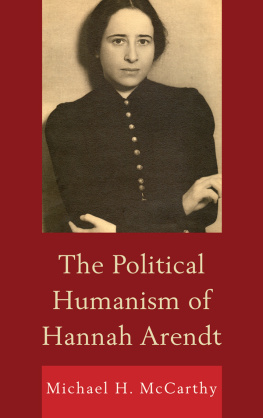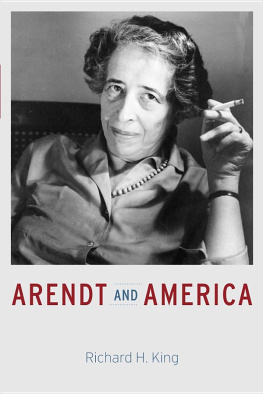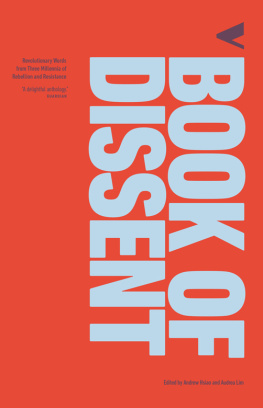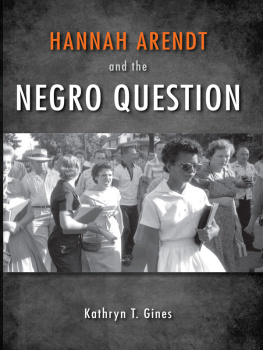COLUMBIA UNIVERSITY PRESS
Publishers Since 1893
New York Chichester, West Sussex
cup.columbia.edu
Copyright 2012 Columbia University Press
All rights reserved
E-ISBN 978-0-231-15872-5
Library of Congress Cataloging-in-Publication Data Gurman, Hannah.
The dissent papers : the voices of diplomats in the Cold War and beyond / Hannah Gurman.
p. cm.
Includes bibliographical references and index.
ISBN 978-0-231-15872-5 (cloth : alk. paper) -- ISBN 978-0-231-53035-4 (e-book)
1. United States--Foreign relations--1945-1989. 2. Cold War--Diplomatic history. 3. Diplomats--United States--History--20th century. I. Title.
E840.G87 2012
327.7300904--dc23 2011024506
A Columbia University Press E-book.
CUP would be pleased to hear about your reading experience with this e-book at .
References to Internet Web sites (URLs) were accurate at the time of writing. Neither the author nor Columbia University Press is responsible for URLs that may have expired or changed since the manuscript was prepared.
I have accrued many debts of gratitude over the course of writing this book, and it is my pleasure to acknowledge some of them here.
This book would not have been possible without the inspiration, guidance, and support of my doctoral advisors at Columbia University. I am grateful first to Ann Douglas for opening up the world of the Cold War to me, inspiring me to know the facts of Cold War history, and scribbling all over the drafts of my seminar papers and dissertation chapters with substantial critique, generous praise, and always, of course, suggestions for further reading. I thank Bruce Robbins for giving me a reason to continue after my first semester at Columbia, inspiring me with his scholarship and writing, forcing me to clarify and deepen my own thinking and writing, and encouraging me to take intellectual risks. Before I knew what my dissertation was really about, Anders Stephanson pointed out the few interesting snippets of an otherwise tortured paper I had written about George Kennan. These snippets became the basis of my dissertation. I thank him for his keen and clarifying insights into the nature and direction of my project, for teaching me how to think and research as a diplomatic historian, and for believing that I could offer something to the scholarship of U.S. foreign relations. Ezra Tawil taught me how to craft scholarly arguments, write a dissertation, and turn it into a book. I am grateful to him for guiding me through the art of scholarly writing and for giving me moral as well as intellectual support in good times and in occasionally uncertain ones. My time at Columbia would not have been nearly as valuable as it was without my confreres in the English Department. Thanks to Kairos, Karen, Adela and Chris, Greg and Kim, Ellen and David, Patricia and Manu, Eugene, Felicity, and Michele for the many hours of eating, drinking, and library camaraderie over the years. Y muchsimas gracias Jos ngel por tu amistad.
I would also like to thank the Bancroft dissertation committee and Columbias Graduate School of Arts and Sciences for the 2008 award that provided me with intellectual encouragement and supported the publication of this book.
I owe a special debt of gratitude to Philip Leventhal, who read my manuscript with a keen and understanding eye and gave it a home at Columbia University Press. I thank him for seeing the projects potential, for believing in the importance of its arguments about writing, and for helping me to hone the manuscript into a more coherent whole. I would also like to thank the anonymous reviewers who read the manuscript for Columbia University Press, identified its strengths and weaknesses, and offered insightful, incisive, and detailed comments and suggestions that proved invaluable in the revision process.
Several other people read and reviewed the whole or parts of this book at various stages of its development. I would like to thank Marilyn Young for reading and commenting on the project at the dissertation stage and for all her support and guidance since I have been at NYU. I am thankful to Nick Thompson, Fred Logevall, and the editors and anonymous reviewers at Diplomatic History and the Journal of Contemporary History for reading and commenting on earlier versions of various chapters. A version of was published in the Journal for Contemporary History, volume 45, issue 2, April 2010 by SAGE Publications Ltd./SAGE Publications, Inc. I am grateful to Robert Newman for his engaging correspondence, for sharing his work on the China hands, and for sending me the cassettes of his interviews with Jack Service and John Davies. Thanks as well to the family of Jack Service, especially John McCormick, for their interest in this project and my work more generally. And thanks to Dan Linke at the Seeley Mudd Manuscript Library for our conversations about Kennan and his willingness to assist whenever help or support was needed.
A special thanks to my colleagues at Gallatin, who have become my mentors as well as my friends. I am grateful for the opportunity to work with such wonderful people, who have made the last few years such an intellectually and personally rich experience for me. And to my students at Gallatin, who have enthusiastically joined in the debate, intelligently weighing the legacies of dissenting diplomats, as well as larger questions about the U.S. foreign policy establishment and the role of the United States in the world.
I owe the greatest debt to my parents, Benjamin and Gail Gurman, who instilled a love of books, history, and learning in me. I have no doubt that the seeds of my current endeavors were planted at the kitchen table, where I was introduced to pressing social, political, and cultural debates. I also thank the Nikolic and Beadle familiesSarah, Sasha, Rachel, Peter, Nathan, Noah, Isaac, Jacob, and Esther. The commotion and conversation of Friday night dinners at your homes over the last decade have been a welcome reprieve from long, quiet days of writing. In addition to their support, the Alban family has given me a whole new set of kitchen table debates as well as fluffy friends to distract us from them. Thank you, Hedy, Rachel, and Pearl, and of course, Lewis, who is greatly missed but fondly remembered.
Last but certainly not least, I thank Joe, who, more than anyone else, has shared in the occasional highs and lows and everything in between that goes along with writing a book. Joe has swung with the highs, buffered the lows, and engaged the everyday preoccupations of this project. He has listened and contributed to my evolving thoughts on just about every aspect of this book on an almost daily basis. More importantly, it is with him that I continue to learn about and experience the world. I dedicate this book to Joe.

